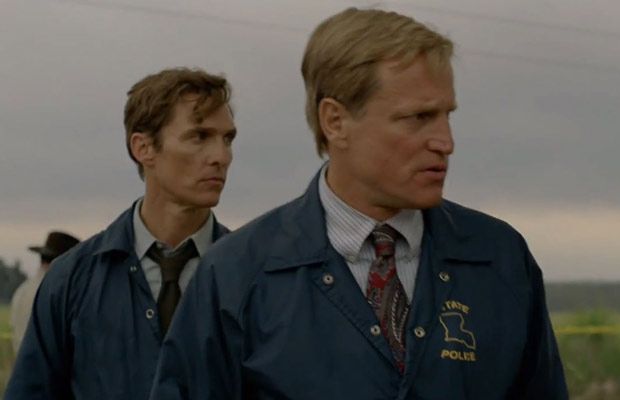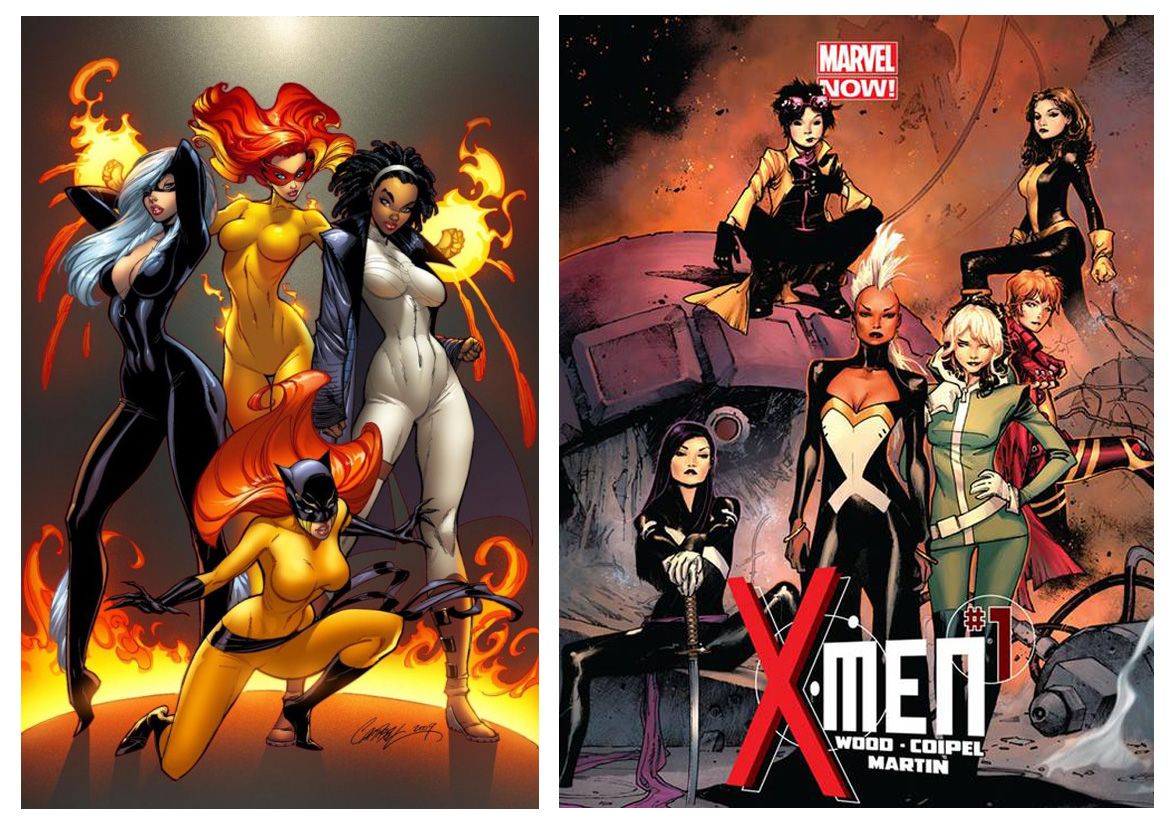One of the first posts I ever wrote for CSBG was all about context, and specifically, how
Marvel’s context was showing when it came to their portrayal of women. Since then I’ve frequently talked about context, but never entirely devoted a post to it again. New Yorker writer Emily Nussbaum’s harsh take on critical darling True Detective a few weeks ago though had me thinking a lot about that context post, and about how much context shapes how we process things.
I loved True Detective (though I’ll agree they did not stick the landing in the finale) and I didn’t agree with all of Nussbaum’s points but I couldn’t get away from the value of her argument, less because I related to it from a television perspective and more because I couldn’t help but see the relation from a comics perspective.
Nussbaum reviews television, so she sees a whole lot more of it than I do, and thus she’s better positioned to say whether she’s seeing a lot of stuff that’s trending this same way (specifically sexist/misogynist material). In her piece she references a whole bunch of shows (Boardwalk Empire, Ray Donovan, House of Lies) that have the same sexist vibe as True Detective -- and none of them are shows I’m watching. Am I not watching them because they DO feel a little bit sexist to me from the limited bits I’ve seen of them and/or the way they appear in marketing and previews? I think this is probably true. And Nussbaum doesn’t have that luxury; she has to watch a whole lot of stuff in order to be able to talk intelligently about not just one show, but the television landscape as a whole. And the same is true for me of comics.
At the end of the day context can so easily kill something for me.
It’s not as hard at this particular moment in time for me as it used to be to read a really good comic that might also feel a little sexist because I honestly have a lot to choose from. So I'm able to compartmentalize the perspective in that particular piece and see it simply for what it is -- one take. And it if it happens to be particularly well done then accepting it for what it is is easier in this current comics landscape. Sure, there are still infinite steps to do before our work in diversity and positivity is “done” in large part because though we’ve seen a lot of positive change, it’s hard to tell how lasting any of it will be. But when I read a book today that is maybe not so female positive or is outright sexist, I can also point to (and read) dozens of books that are female positive and feel progressive and positive as a contrast. So that context, of having a lot to choose from, makes it easier to both understand and even enjoy a book that may have a sexist point of view, so long as it’s done well and has value.
True Detective wasn’t an ensemble piece, it was a story about two men. They were detectives but they were men first and foremost, and their maleness (for a whole bunch of reasons) was a key part of what made them who they were. They came with flawed and damaged selves and world views and the show reflected this with painstaking accuracy. The way they treated women and the way that women were perceived through their eyes (and thus relayed to the viewers) felt accurate to me. Not every show is about women, not every show should be about women. And not every show should be about women being portrayed in a positive light. That would be boring and unrealistic, small-minded and limiting.
To be honest, a strong and layered female character tossed into True Detective would have thrown off the balance of the whole piece. Sure I would have liked to see the same exact story told through the eyes of a female character as it would be fascinating, but it would no longer be the same story in any way shape or form. This was about Rust and Marty, and it had a clear and cohesive vision on that front. What’s fascinating about good character pieces is the way in which we are shown their world, and True Detective was a great example of that. It’s true in comics as well. Before critiquing a work for being sexist or even something not female positive it’s important to think about whether it should be in the first place. Not everything should be or that would indeed be a narrow (and unrealistic) world view indeed.
However, it’s easy to see and understand Nussbaum’s frustration when you are pummeled constantly with works that take a similar world view and leave little room for other viewpoints. And because I live in the world of comics I can easily sympathize with Nussbaum’s discontent. I’m not there RIGHT now because things are looking up for ladies in comics, but man have I been there...and I may well be there again (I mean what the hell are these bombshell variant covers about...jesus).
The only way to change a system is to keep hammering away at it. Simultaneously raising up good work and those that do good work, speaking out and drawing attention to problems you see, and encouraging diversity in your stories. Those are all, still, in my opinion, the best way to get all the best stories.
Something that often gets suggested or misunderstood about my personal point of view, since this column is about “women in comics,” is the idea that I only want female positive books, or that I only want books that feature women in certain positive roles. And that’s not the case at all. I’m interested in all kind of stories, I just don't always talk about them here since this column is, as stated, about "women in comics." I embrace and enjoy plenty of stories (and creators) that many assume I would hate, but I strongly believe that artists and writers are best not hemmed in and restrained as limitations to creativity do not create the best work. Conversely, it’s only when the landscape of a medium is more balanced and inclusive that there’s the freedom to explore more controversial material and judge it solely on its merits. It’s easier to embrace and love True Detective for what it is if the field around it is also not desperate for strong female positive work, the same way that in comics it would have been easier for me to accept something like Marvel Divas from five years ago had Marvel's field been filled with other female positive work to choose from like it is/is poised to be today (Black Widow, Captain Marvel, She-Hulk, Ms. Marvel, X-Men, etc.).
But it wasn’t. It wasn’t and it made me righteously angry and it eventually lead me here…to this column, where I regularly try to support the good work, support the good creators, and draw attention to the problems I see. It's been exhausting but also rewarding and I do honestly feel excited about where we are, where we're headed.


